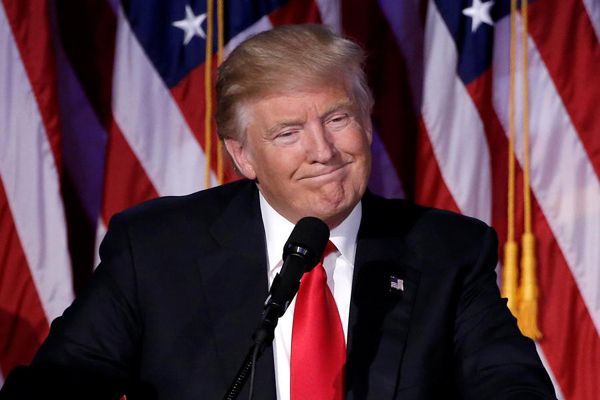Positive side of Trump in building China-US ties
Updated: 2016-11-11 07:51
By Chen Weihua(China Daily)
|
||||||||
|
|
|
US President-elect Donald Trump speaks at election night rally in Manhattan, New York, US, November 9, 2016. [Photo/Agencies] |
How will Donald Trump's presidency-after he assumes office on Jan 20, 2017-affect China-US relations? This question is uppermost on many people's minds a day after Republican Trump defeated former secretary of state Hillary Clinton in the US presidential election.
Many have taken seriously Trump's rhetoric on the campaign trail over the past 16 months, such as imposing a 45 percent punitive tariff on Chinese imports and calling China a currency manipulator. This could be misleading. Trump had only talked about tariff in the early period of the campaign and not repeated it for a long while. Besides, the US business community and the Congress are not likely to approve of such mutually destructive measures. And the US Treasury Department has repeatedly said in the past year that China is not manipulating its currency.
But how seriously should we take Trump's campaign rhetoric is a problem. Past US presidential candidates have made crazy vows vis-a-vis China during their campaigns, but they forgot them quickly once elected.
Of far more importance will be Trump's words and deeds after he enters the White House. His victory speech has sent positive messages. For example, he said: "We will deal fairly with everyone…All people and all other nations" and "we will seek common ground, not hostility; partnership, not conflict."
His speech reflects the spirit of President Xi Jinping's congratulatory message on Wednesday to Trump about no conflict, no confrontation, mutual respect and win-win cooperation.
During the campaign, Trump also said that he was willing to meet Democratic People's Republic of Korea leader Kim Jong-un and improve ties with Russia. Such a tone is welcome given the US government has intervened excessively in other nations' internal affairs in the past and US leaders like to lecture others.
President Barack Obama has been regarded by some as being less interventionist. Yet his drastic increase of drone strikes and intervention in Libya have created more problems in countries and regions.
The Obama administration is also partly responsible for triggering a bad action/reaction cycle with China in East Asia and the South China Sea with its "rebalancing to Asia-Pacific" strategy, widely perceived to contain China's rise.
Indeed, as secretary of state, Clinton made some contributions to US-China relations, but her hawkish instinct could have further raised tensions between Beijing and Washington if elected president.
Kishore Mahbubani, dean of the Lee Kuan Yew School of Public Policy at the National University of Singapore, said last week that Clinton, if elected, has to unlearn many of her past instincts and develop new ones.
Trump's victory speech does contain encouraging messages, but he has not made a foreign policy speech, especially regarding China. It is still unknown who will become his secretary of state and national security advisor, and who will be the members of his foreign policy team.
The growing interdependence between the two largest economies and the huge potential for mutual cooperationare compelling reasons for the two countries to expand cooperation and better manage their differences.
The US needs to show more confidence in Asia-Pacific countries' wisdom and ability to solve their maritime territorial disputes through bilateral negotiations.
Many Washington pundits I talked to seem to have little confidence in Trump's ability in foreign policy, including US-China relations. I hope Trump upsets them too by demonstrating his ability to keep the relationship on a more stable and healthy track for the benefit of both countries, as well as the region and beyond.
The author is deputy editor of China Daily USA. chenweihua@chinadailyusa.com
- A foreigner's guide to Singles Day shopping spree
- China jails 49 for catastrophic Tianjin warehouse blasts
- Taobao village gets ready for shopping spree on 11/11
- Parents leave behind 9 million children in China
- 60% Chinese rich people plan to buy house overseas, US most preferred
- Lovable cub Pandora recalled 78 years later
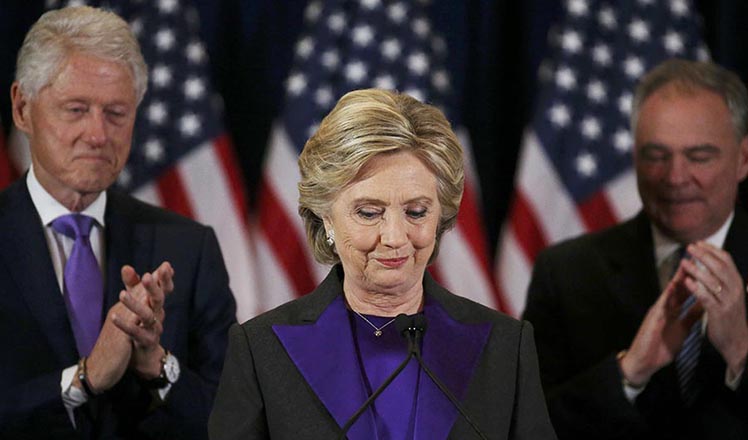
 Clinton concedes election, urges open mind on Trump
Clinton concedes election, urges open mind on Trump
 Places to enjoy golden gingko tree leaves
Places to enjoy golden gingko tree leaves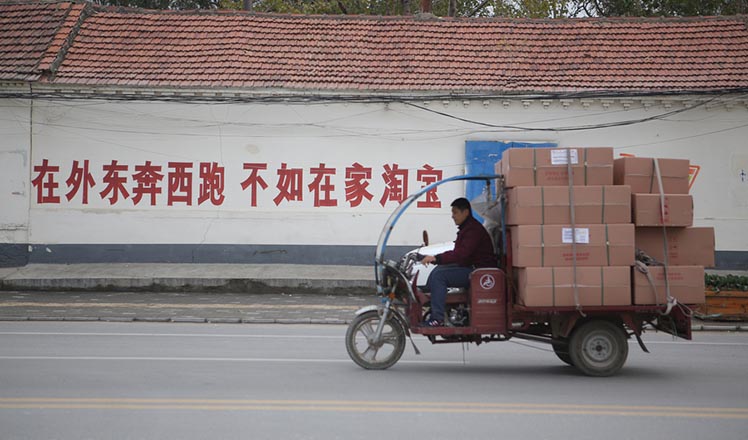
 Taobao village gets ready for shopping spree on 11/11
Taobao village gets ready for shopping spree on 11/11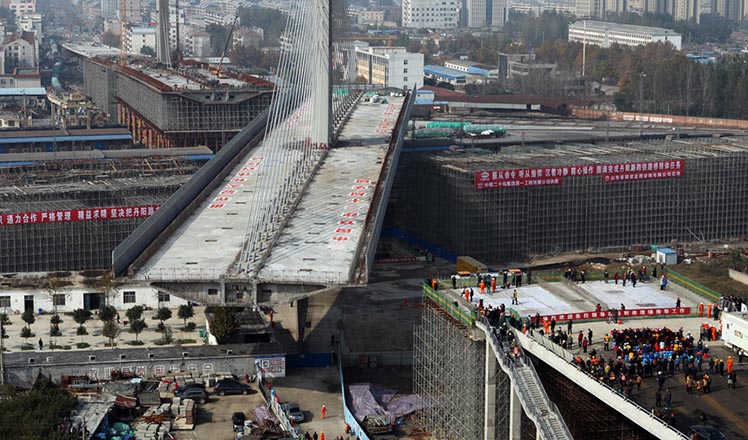
 Overhead bridge rotated in East China's Shandong
Overhead bridge rotated in East China's Shandong
 The 75th anniversary of Red Square parade celebrated
The 75th anniversary of Red Square parade celebrated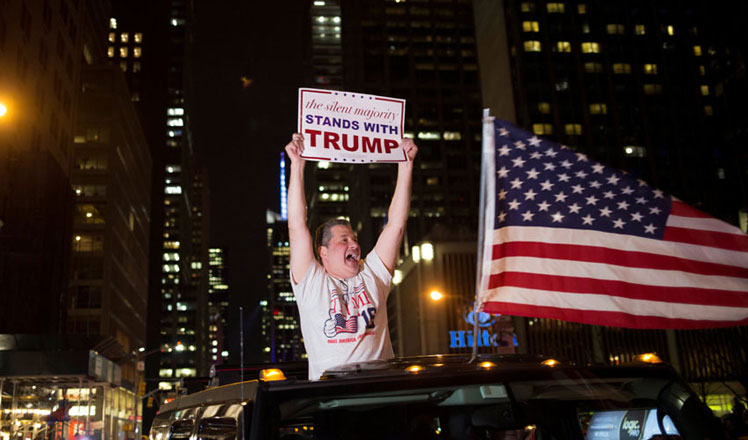
 Trump trumps Hillary: Cheers, tears and shock
Trump trumps Hillary: Cheers, tears and shock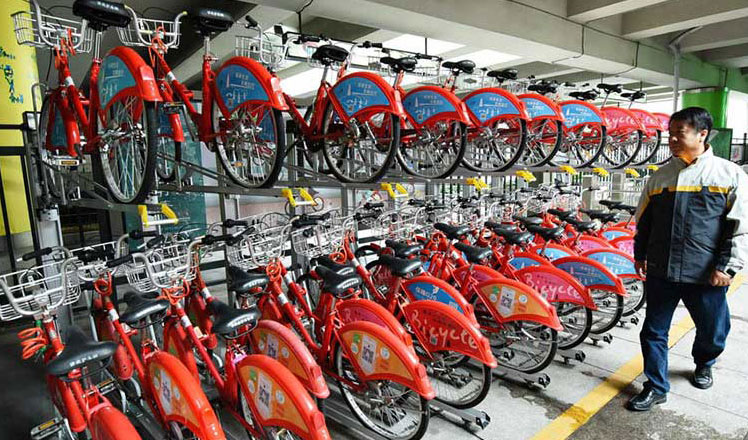
 Bi-level bicycle storage in East China's Hangzhou
Bi-level bicycle storage in East China's Hangzhou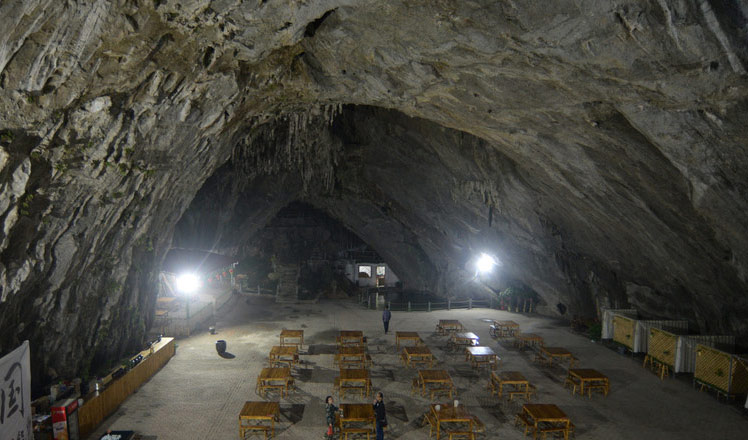
 In pics: Dine deep underground in a cave
In pics: Dine deep underground in a cave
Most Viewed
Editor's Picks

|

|

|

|

|

|
Today's Top News
No environmental shortcuts
US election rhetoric unlikely to foreshadow future US-China relations
'Zero Hunger Run' held in Rome
Trump outlines anti-terror plan, proposing extreme vetting for immigrants
Phelps puts spotlight on cupping
US launches airstrikes against IS targets in Libya's Sirte
Ministry slams US-Korean THAAD deployment
Two police officers shot at protest in Dallas
US Weekly

|

|
